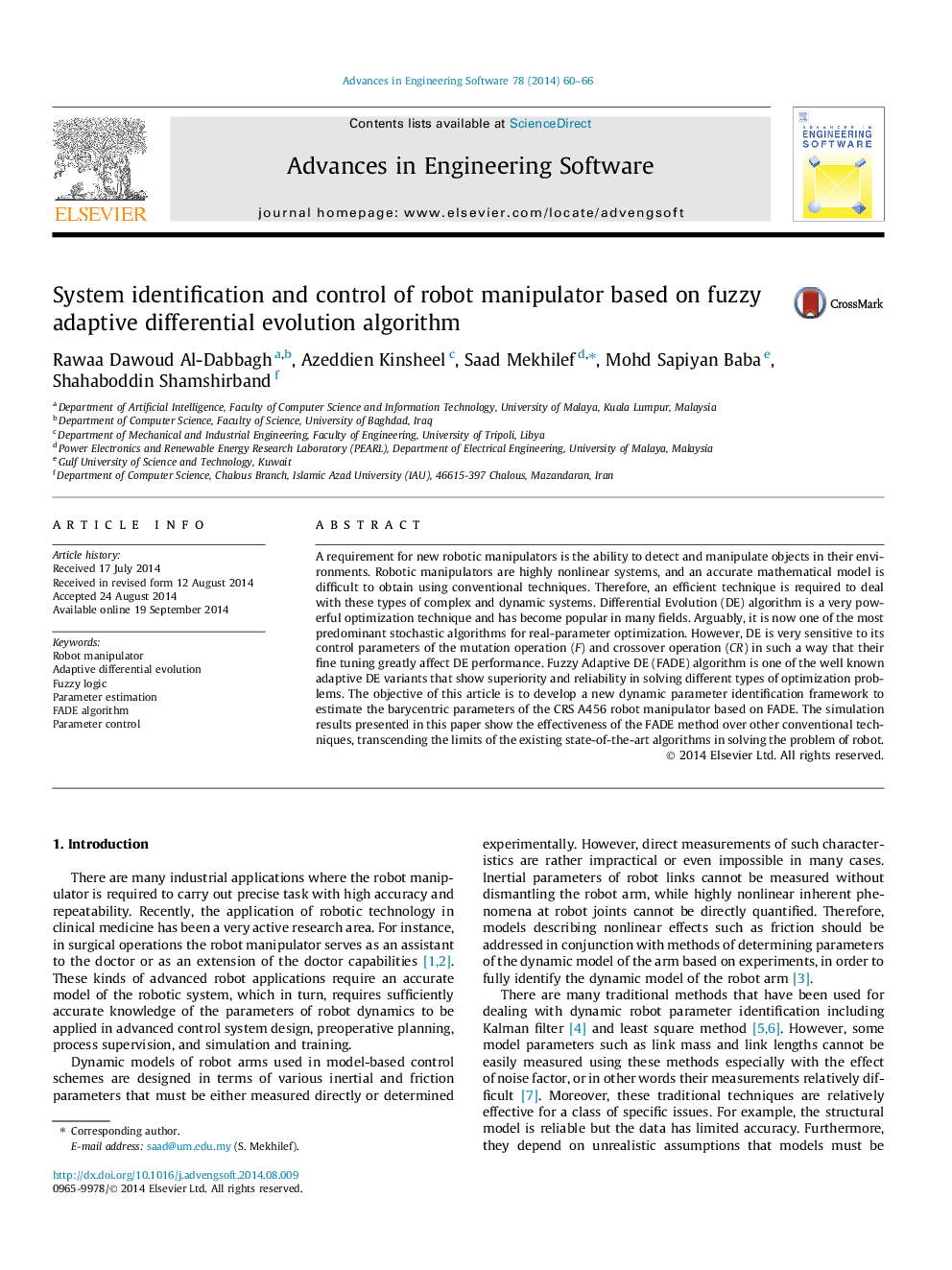| Article ID | Journal | Published Year | Pages | File Type |
|---|---|---|---|---|
| 568299 | Advances in Engineering Software | 2014 | 7 Pages |
•We applied FADE to estimate the barycentric parameters of the CRS A456 robot manipulator.•We compare the results of FADE in terms of MSE and STD over other state-of-the-art methods.•The estimated torque using FADE is more accurate and nearer to the measured torque.•FADE could overcome the problem of noisy data.•FADE has a fast convergence rate than the standard DE due to fuzzy system.
A requirement for new robotic manipulators is the ability to detect and manipulate objects in their environments. Robotic manipulators are highly nonlinear systems, and an accurate mathematical model is difficult to obtain using conventional techniques. Therefore, an efficient technique is required to deal with these types of complex and dynamic systems. Differential Evolution (DE) algorithm is a very powerful optimization technique and has become popular in many fields. Arguably, it is now one of the most predominant stochastic algorithms for real-parameter optimization. However, DE is very sensitive to its control parameters of the mutation operation (F) and crossover operation (CR) in such a way that their fine tuning greatly affect DE performance. Fuzzy Adaptive DE (FADE) algorithm is one of the well known adaptive DE variants that show superiority and reliability in solving different types of optimization problems. The objective of this article is to develop a new dynamic parameter identification framework to estimate the barycentric parameters of the CRS A456 robot manipulator based on FADE. The simulation results presented in this paper show the effectiveness of the FADE method over other conventional techniques, transcending the limits of the existing state-of-the-art algorithms in solving the problem of robot.
